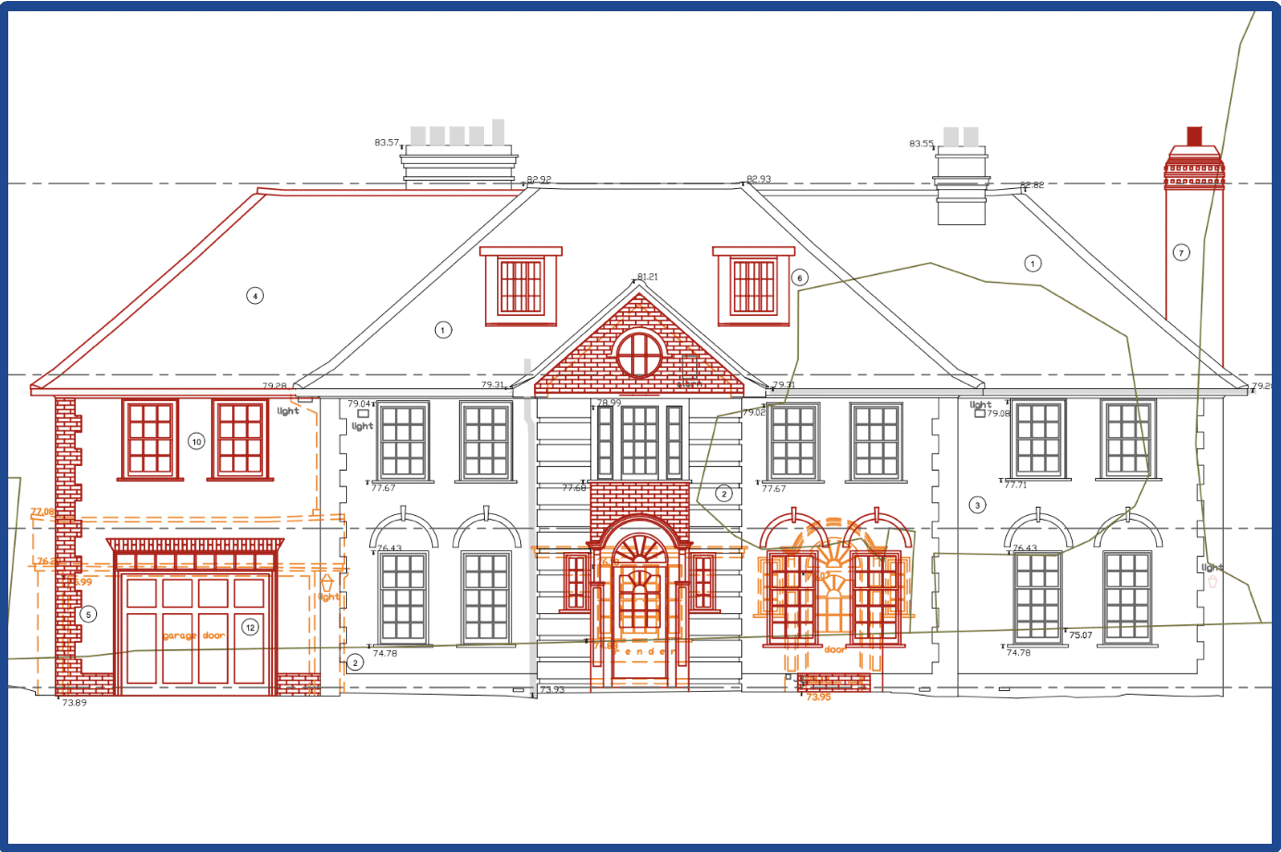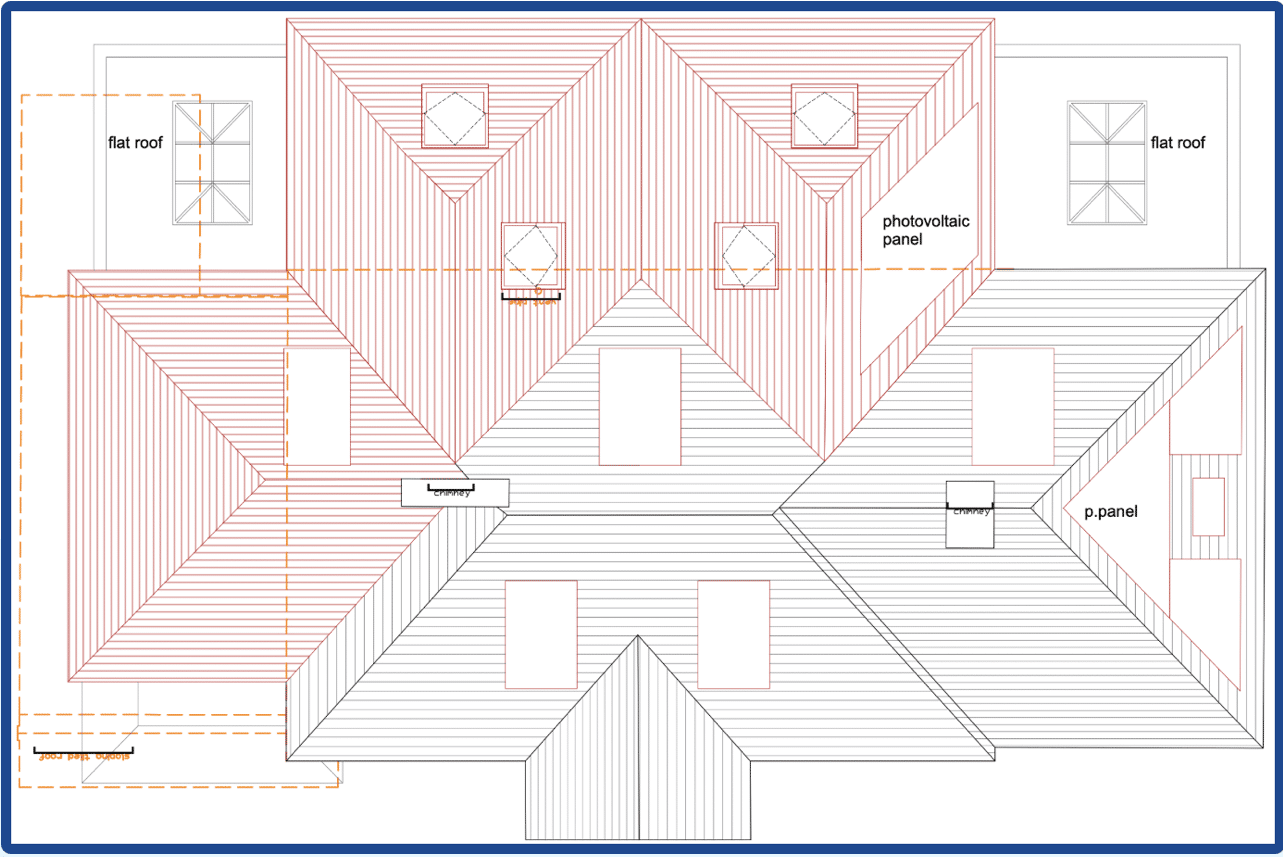McLoughlin Planning is delighted to confirm that they have successfully appealed a refusal of planning permission for alterations and extensions to a dwelling in the desirable Moor Park Estate, Hertfordshire.
The scheme sought a myriad of works, including the demolition of an existing garage, workshop and front canopy; and the construction of a two-storey side and rear extension. The key planning issue was the effect of the proposed development upon the character and appearance of the existing building and the area, including the Moor Park Conservation Area.
Preparing a suitable strategy following the refusal of planning permission
McLoughlin Planning were approached to assist following a refusal of planning permission for the scheme. Three Rivers District Council were content with the more minor elements of the design but felt that the proposed extensions would negatively impact the Conservation Area.
Following a review of the planning submission as a whole, along with the relevant plan policies and pertinent precedents, they advised their client to appeal the planning decision. A significant part of their reasoning behind this was that they felt that the Council’s concerns were based solely on a prescriptive interpretation of their Conservation Area (CA) Appraisal, which aimed to maintain spaces between detached properties. The Inspector agreed with our interpretation, identifying that:
“The CA Appraisal explains these design standards are to maintain the open character of the estate and avoid the overdevelopment of plots. As I have found that the proposed development would achieve this, it is not necessary to forensically examine whether the proposal would exactly meet the design standards listed in the CA Appraisal.”
This is an important reminder that policies and guidance should not be taken so literally. In this case, the CA Appraisal insisted that a 2.5m space to the side of the property should remain.
Even though the residual space proposed was less than this, the extensions were subservient to the main dwelling, designed to a high standard for the CA and they still maintained a space to allow visibility between plots. These points were, in the Inspector’s view, more important to the preservation of the CA than insisting on the prescriptive distances in the CA Appraisal.
What happens after a planning application is refused?
If you have had your application for planning permission refused or have been informed by your local Council that a refusal is imminent – it may not necessarily mean the end of the line for your development aspirations. If you have received a planning refusal, then in the first instance, review the decision notice and officer’s report. These will give you the reasons for refusal and any perceived planning issues which may need to be resolved. A planning consultant can advise on the severity of these reasons, and whether they can be navigated or mitigated.
Once you understand why the application has been refused, you can then choose the appropriate planning strategy, be that a planning appeal, or a revised scheme and resubmission. Alternatively, your application may still be live, but you are aware that a refusal is pending, in which case negotiation with the case officer and relevant stakeholders will be key.
Which route to take and the requirements of each is something our planning consultants specialise in. Feel free to contact the team at McLoughlin Planning to discuss your project and find out how we can best assist.
How McLoughlin Planning can help
McLoughlin Planning, and their team has a simple objective: to get results for their clients by providing high-quality planning consultancy.
Their team of chartered town planning consultants deal with a host of interesting planning projects from across southern England and Wales – from strategic promotions and commercial premises to private developments and rural projects.
They are a friendly and approachable team who care passionately about the built environment, always striving to get the best outcome for their clients and the community.
If you have a development project which would benefit from expert planning consultancy input, then feel free to view the full ‘About Us’ page to view which of their planning consultants best fit your needs and contact McLoughlin Planning through either the ‘Arrange a Call‘ tab on the contact page or via the email and telephone number provided below.
Joe Seymour – Associate Director
E: joe.seymour@mplanning.co.uk
T: 01242 895 121


Image source: Seabrook Architects






